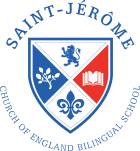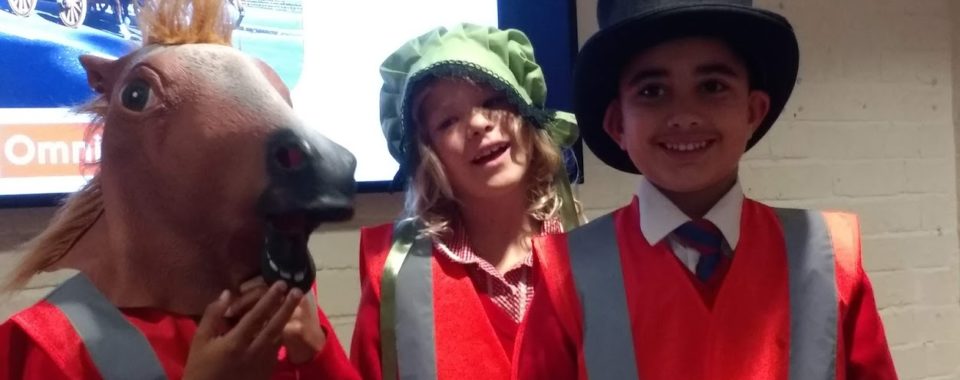History
Our vision at St Jérôme Church of England Bilingual School is for our children to have a multilingual and multicultural education that enables them to embrace diversity and think globally. We want them to recognise the beauty and potential of the planet on which they live and to understand the relationship between people and the earth.
Intent
The curriculum is designed to ensure that it:
- Extends children’s knowledge of world and British history. To consistently make comparisons: between civilisations and to today; and to be able to observe and explain vestiges of historical groups, cultures and philosophies in the world/ Britain/London today.
- Makes a greater sense of History as a subject and ensures that pupils recognise how their own experiences will become part of history. Making use of links to current events when necessary to consolidate the impact and use of History as the chance to learn from the past and to affect change in the present.
- Ensures that pupils are using subject-specialist vocabulary at an early age and as a result quickly begin to use these terms with confidence and accuracy.
- Increases the range and accuracy of historical skills such as: communication of content learnt and researched; investigatory skills discerning images, content, dates etc to form an idea of time, opinion behind the piece, and reasoning for its creation; using primary and secondary sources in unison to retrieve evidence behind opinions; providing reasoned arguments using a wide range of evidence to support responses.
- Collaborates with the wider area of Harrow and London to form strong links with knowledge providers as well as any groups with links to Topics covered at St Jérôme.
The curriculum builds a knowledge of:
Change, where children will describe, explain and compare in increasing depth, developing knowledge of the aspect of change and how groups and cultures
Comparison, where children will evaluate similarities and differences, and this as an effective structure to build their literacy and historical argumentation skills.
Significance, where children will describe, explain and compare in increasing depth, developing knowledge of the classification of importance and impact of changes made throughout history.
Humankind, where children will learn how humans have shaped the world around them
Creativity, where research demonstrates that our shared heritage can inspire curiosity, imagination, critical thinking and new perspectives. This enhances people’s innovative capacity; leading to greater productivity.
Place and space, where children will describe, explain and compare places in increasing depth, developing knowledge about how geographical characteristics can form a group’s: culture, decision making, means of production, governing systems and relationships with neighbouring groups.
Implementation
- History leaders’ source, organise and maintain the image library and resource banks to enable teachers to successfully deliver the curriculum.
- Knowledge organisers, containing key vocabulary and images are in place for each unit.
- Knowledge organisers are displayed in classrooms all year round to support recall of learning experiences and to link historical learning appropriately with other subjects.
- Teachers appropriately plan using the Engage and Big Question phases to both allow for enthusiasm as well as a professional look at how History affects us today. Teachers combine historical learning with other subjects as appropriate to explicitly join children’s learning together and develop a sound cross curricular understanding of the world.
Impact
- History leaders monitor planning, teaching and the historical development of the pupils.
- History leaders and the Headteacher carry out pupil voice meetings to assess pupil’s retention of knowledge and their progress in historical knowledge, understanding and skills
- Teachers assess pupil’s knowledge using their responses to Big Questions.
.
Overview
History in EYFS
In EYFS, as an important part of the ‘Understanding the World’ strand of the curriculum, pupils explore the world through the topics: Me and My Community, Once Upon a Time, Starry Night, Dangerous Dinosaurs, Long Ago and Big Wide World.
History in Key Stage 1
In Key Stage 1, children will explore a specific topic each Autumn and Summer. In Year 1 children will begin to understand themselves by exploring the topic Childhood, in which they will create timelines of their own lives alongside a family tree to form an understanding of significant events and the idea of causation. This topic includes a look at childhood in the 1950’s to allow the pupils to begin to compare and contrast as a key historical skill. This skill will then be improved upon in the Summer Term with the topic School Days where the children will think about their school days now alongside what life was like for a Victorian school child.
In Year 2, the children will focus on the idea of significance and what makes somebody significant on a large scale. In the Autumn term, they will first look at significant people in the topic Movers and Shakers in which the children will explore the impact of explorers and activists. In the Summer term, they will then begin to look at the significance and power of rulers with a specific focus on the British monarchy in the topic Magnificent Monarchs.
History in Key Stage 2
Throughout Key Stage 2, students will build on these skills of comparison, significance and causation through investigating specific eras or civilisations. There will be two focuses per year again one in Autumn term and the other in the Summer term. Similarly, the focus of History as a way of understanding the present will be explored in each topic to foster the idea that History allows oneself to understand their present.
You can download our curriculum map here.
Enquiries:


End of term reviews:

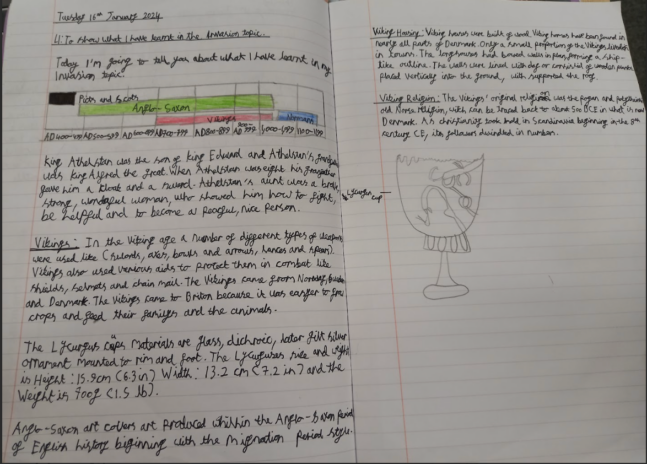
Homework:

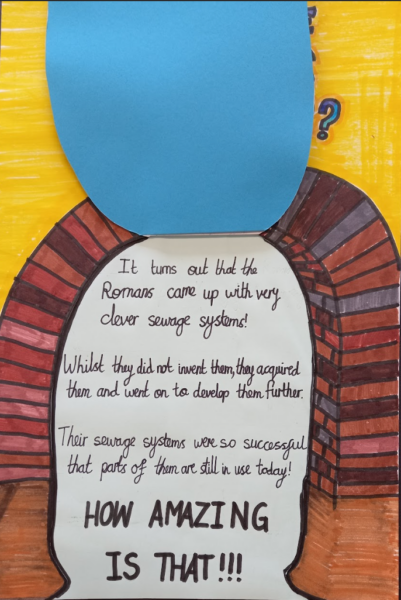
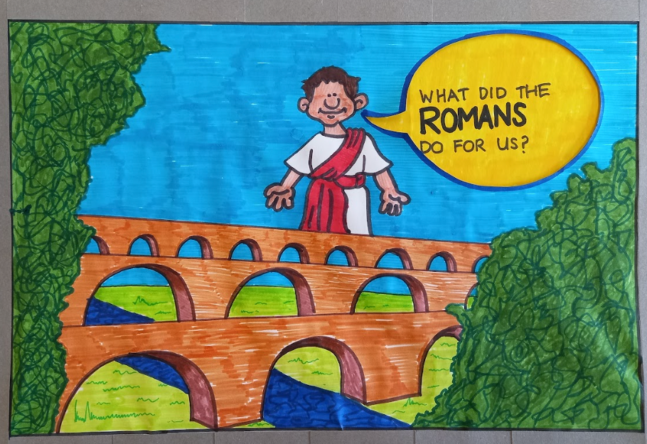

National Curriculum:
Key Stages 1 and 2: National Curriculum for History
Great places to visit:
If you have the opportunity, we are very fortunate to have a number of exciting places in the local area to visit that will support children’s learning in History.
British Museum – https://www.britishmuseum.org/
Museum of London Docklands – https://www.londonmuseum.org.uk/docklands/
Imperial War Museum – https://www.iwm.org.uk/
R.A.F Museum (very local) – https://www.rafmuseum.org.uk/london/
London Transport Museum – https://www.ltmuseum.co.uk/
British Library – https://www.bl.uk/
National Army Museum (Very interactive for children) – https://www.nam.ac.uk/
